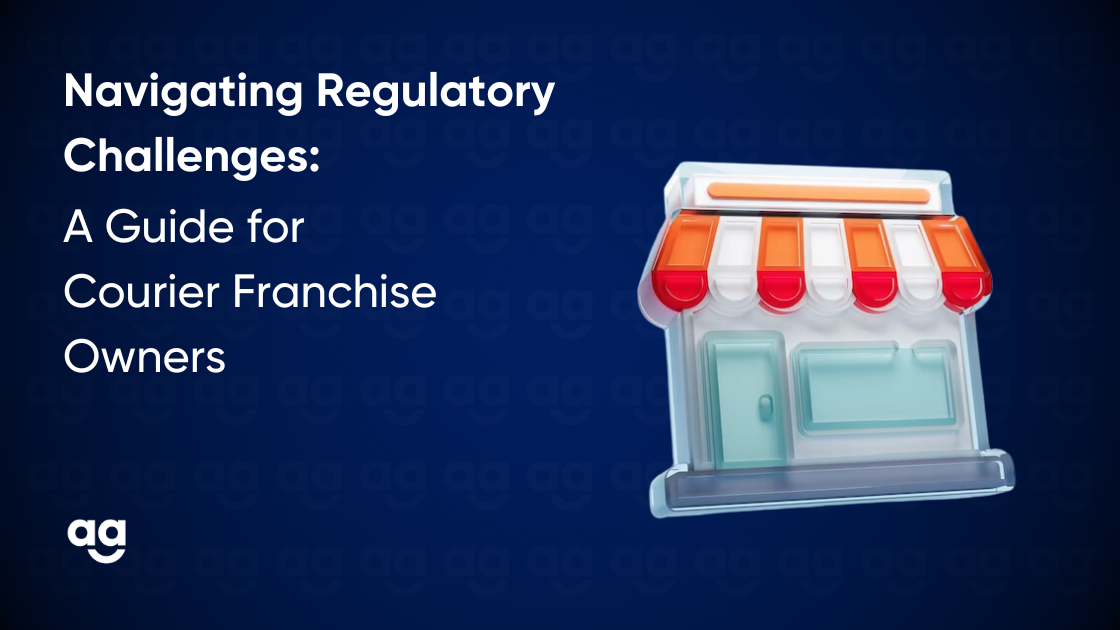Introduction
To ensure smooth operations and legal compliance in the complex world of courier services, franchise owners need to pay close attention to regulatory compliance. Along with it, the laws that govern the courier industry also need to be closely monitored, especially since they keep changing from time to time.
In this blog post, we’ll go over the primary legal concerns that courier franchise owners have to deal with and provide comprehensive guidance on how to resolve them.
Understanding Regulatory Challenges
A courier company operates in a highly regulated environment since it manages the delivery and transit of commodities. Regulations exist at many different levels, including municipal, national, and worldwide legal frameworks. These challenges could involve things like licensing requirements, safety standards, data protection, and environmental regulations.
Licensing and permits
There may be regional and national variations in the license and authorization required for courier services. Franchise owners must carefully consider and follow these prerequisites to ensure that their business methods are legal. This means getting the necessary licenses for vehicles, drivers, and operating in particular zones.
Data protection and privacy
When courier services become increasingly digitally linked, processing customer data becomes a significant regulatory risk. Franchise owners need to put strong data security measures in place to make sure that privacy regulations are followed and that private data is protected from breaches and unwanted access.
Environmental regulations
The growing emphasis on sustainability on a worldwide scale has increased examination of courier franchises’ environmental impact. Respecting environmental rules is essential. This includes legislation pertaining to emissions limitations and waste disposal practices. Besides promoting compliance, implementing eco-friendly activities can enhance the brand’s image.
Employee regulations
The drivers and logisticians that work for the courier company are crucial to the smooth functioning of the supply chain. Respecting labor laws is crucial. These laws address issues including equitable remuneration plans, work schedules, and occupational health and safety regulations. To keep a safe and lawful workplace, franchise owners must be informed about these regulations.
Customs and international shipping regulations
It is imperative that courier franchisees who ship overseas are aware of trade laws and customs regulations. It is essential to understand the documentation requirements, tariffs, and limits set by different countries in order to prevent delays, fines, or other legal concerns.
Navigating Regulatory Challenges: A Guide for Courier Franchise Owners
Conduct regular compliance audits
Franchise owners can find non-compliance areas and take quick action to resolve non-compliance issues by conducting routine internal audits. The company can reduce the likelihood of legal ramifications and maintain compliance with regulations by taking proactive measures.
Invest in compliance training
In compliance training employees should receive continual training to make sure they comprehend the significance of compliance. When workers are informed of the law, they are better able to enforce it while on the job.
Engage legal counsel
It might be quite helpful to establish a connection with legal counsel that specializes in logistics and transportation. Legal professionals can provide guidance on compliance-related matters, assist with the interpretation of complex legislation, and suggest proactive solutions to potential issues.
Utilize technology for compliance management
Utilize technology to your advantage to simplify compliance management. This includes software for tracking and managing licenses, permissions, and data security measures. Automated technology can speed regulatory compliance processes, reducing the likelihood of errors.
Stay informed and network
Engage in active participation in trade exhibitions, monitor legislative changes, and build relationships with other courier service franchise owners. By staying informed about industry trends and regulatory changes, franchise owners can ensure that they are prepared to adapt to evolving compliance requirements.
Establish a crisis response plan
It is imperative to have a well-defined crisis response strategy in case of legal or regulatory issues. This plan should include key contacts, action items, and communication techniques to minimize the impact on the franchise’s operations and reputation.
Conclusion
Operating a courier service inevitably involves overcoming regulatory obstacles. Franchise owners can position their companies for long-term success and legal compliance by being proactive and knowledgeable.
Courier franchise owners can efficiently traverse the complex regulatory landscape and make sure that their operating methods are in line with the constantly changing expectations of the sector by implementing frequent audits, training efforts, working with legal advice and utilizing technology. In the end, following the law promotes observance and enhances the courier franchise’s general profitability and dependability.







 Shipping
Shipping







